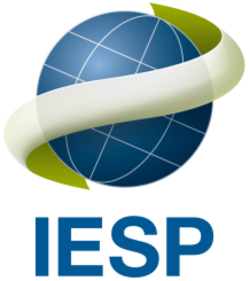Organization:Institute for Earth System Preservation
This article contains content that is written like an advertisement. (September 2023) (Learn how and when to remove this template message) |
The International Expert Group on Earth System Preservation is a global network of scientists, engineers, entrepreneurs, and political administrators. IESP's public goal is to contribute to the further development and practical application of the concept of Earth system science and sustainability.
Activities
IESP organizes thematic-based conferences, workshops, seminars, lectures, and publications.[1] It serves as a liaison between experts, decision-makers, and the public to promote a mutually, beneficial exchange of concerns and knowledge, and to provide scientifically sound recommendations for action. Its activities support policy debates by providing a platform for reflection on the sustainable development of economic and societal systems in mutual relation to terrestrial and aquatic ecosystems. IESP aims to take responsibility for human impacts on the earth system, fostering the resilience of societies, economies, and ecosystems. It searches for holistic and sustainable methods that counteract threatening shortcomings in energy, water, and food supply, medical services and education.
IESP's working definition for the earth system is the considered sum of the planet’s interacting physical, chemical, biotic and societal processes.[2][3]
History
In 2002, the Institute of Advanced Studies on Sustainability (IoS) was founded as a center of excellence in the field of environmental sciences and technology of the European Academy of Sciences and Arts (EASA). It is a registered non-profit organization at the magistrate court of the City of Munich, Germany.
Following the workshop “The Art of Dealing Wisely with the Planet Earth,” IoS established the International Expert Group on the Preservation of the Functionality of the Earth System as part of its activities in 2008. Discussions are summarized in the Zugspitze Declaration.[4] Since then, IESP is associated with the Institute of Advanced Study (IAS) of the Technical University Munich (TUM) in Garching.
During the general assembly on October 6, 2015, the IoS changed its name to “IESP - Institute for Earth System Preservation,” which became the "IESP e.V. International Expert Group on Earth System Preservation."
Organization
IESP is a registered nonprofit association and a collaborating institute of the European Academy of Sciences and Arts (EASA). An elected executive board legally represents IESP, its general assembly functions as the decision-making body, its members are from the European Union, US, China, and Russia. The IESP executive board is formed by Dr. Martin Steger, Prof. Dr. Jörg E. Drewes, Prof. Dr. Michael von Hauff, Prof. Dr. Wolfram Mauser, Prof. Dr. Klaus Mainzer (ex officio) and founding chairman Prof. Dr. Peter A. Poacher.
Even though IESP is registered as a nonprofit association, IESP contributes actively to current public debates and policy making by providing an independent platform for intellectual exchange and influencing political decisions.
References
- ↑ "Who is IESP? - Institute for Advanced Study (IAS)". 31 May 2023. http://www.iesp.de/index.php?id=1050.
- ↑ Schellnhuber, H. J. (December 19, 1999). "'Earth system' analysis and the second Copernican revolution". Nature 402 (6761): C19–C23. doi:10.1038/35011515. https://www.nature.com/articles/35011515.
- ↑ Claussen, M.; Mysak, L.; Weaver, A.; Crucifix, M.; Fichefet, T.; Loutre, M.-F.; Weber, S.; Alcamo, J. et al. (March 1, 2002). "Earth system models of intermediate complexity: closing the gap in the spectrum of climate system models". Climate Dynamics 18 (7): 579–586. doi:10.1007/s00382-001-0200-1. Bibcode: 2002ClDy...18..579C. https://doi.org/10.1007/s00382-001-0200-1.
- ↑ http://www.iesp.de/fileadmin/material_ias/News/Declaration_Earth-System-Engineering_eng_080926.pdf [bare URL PDF]
 |


